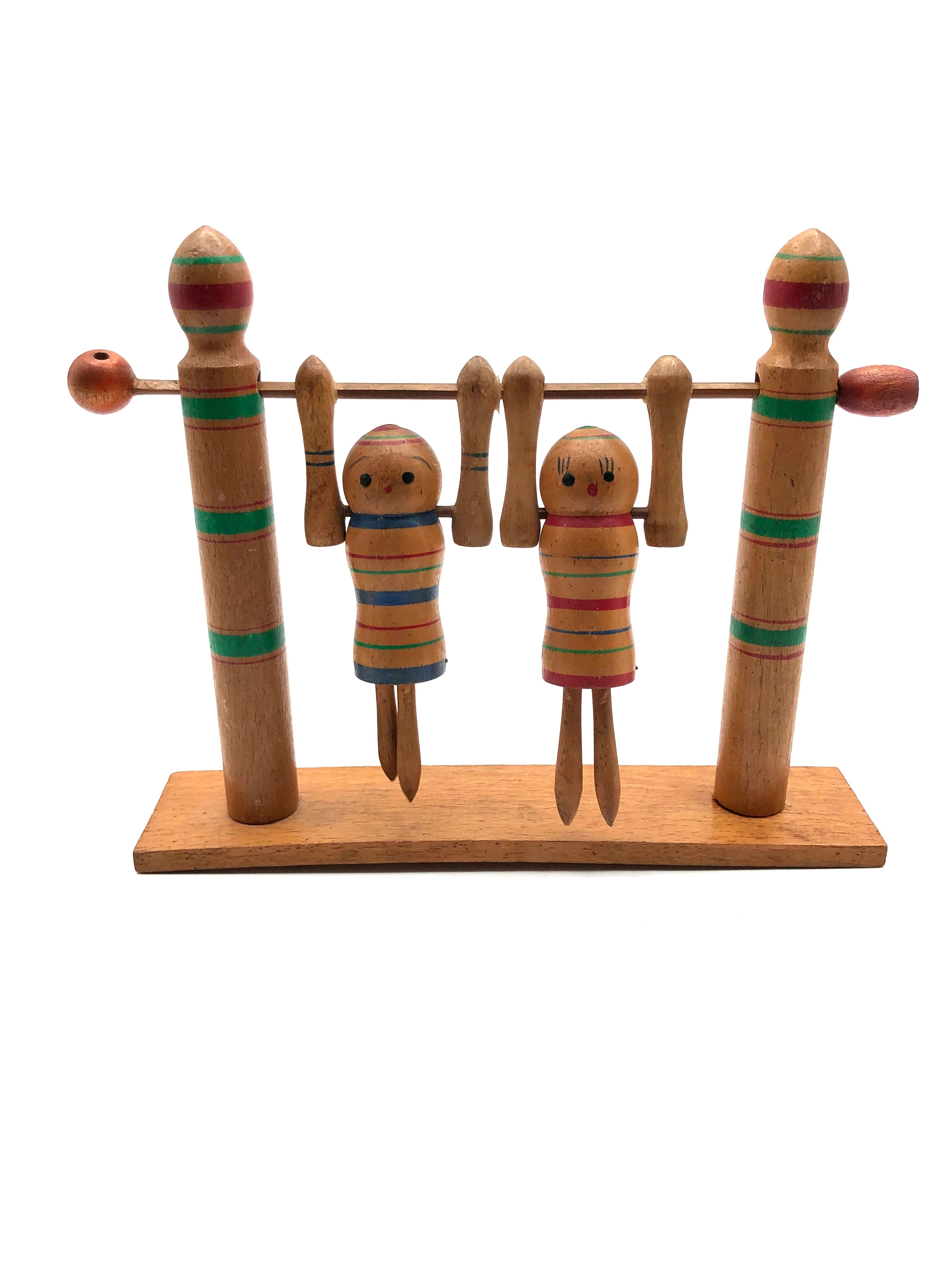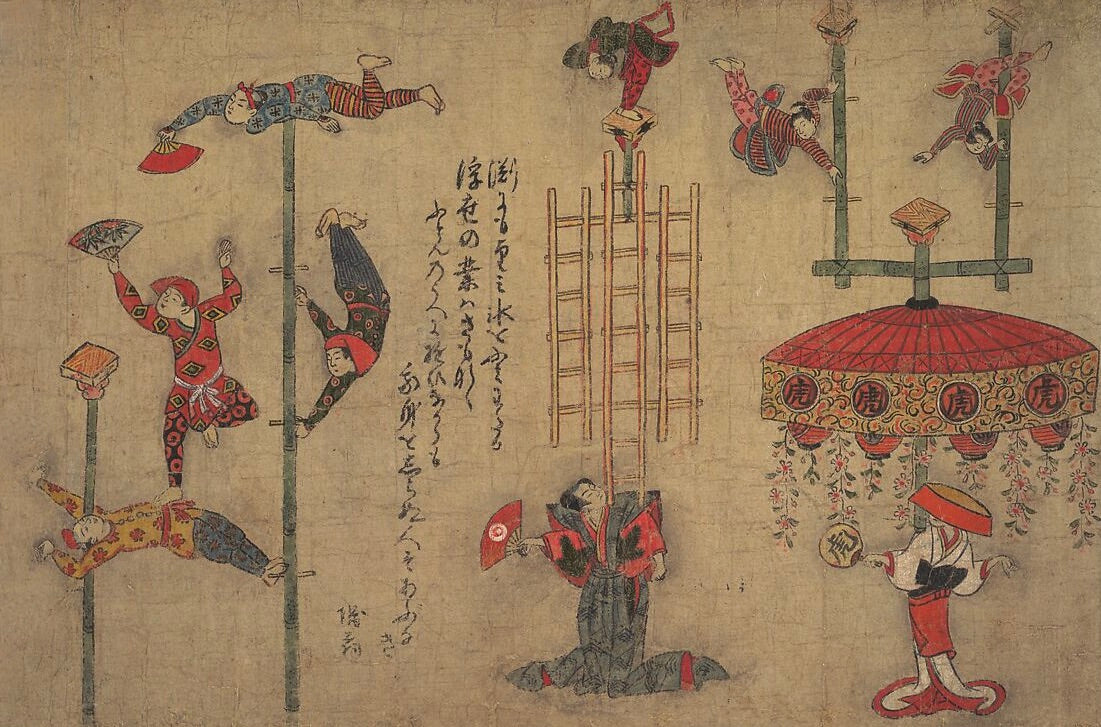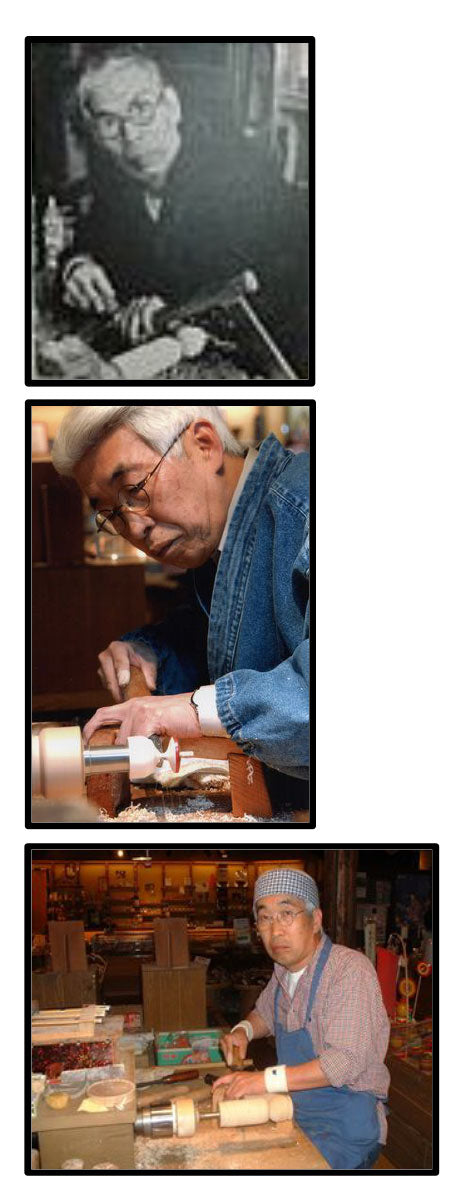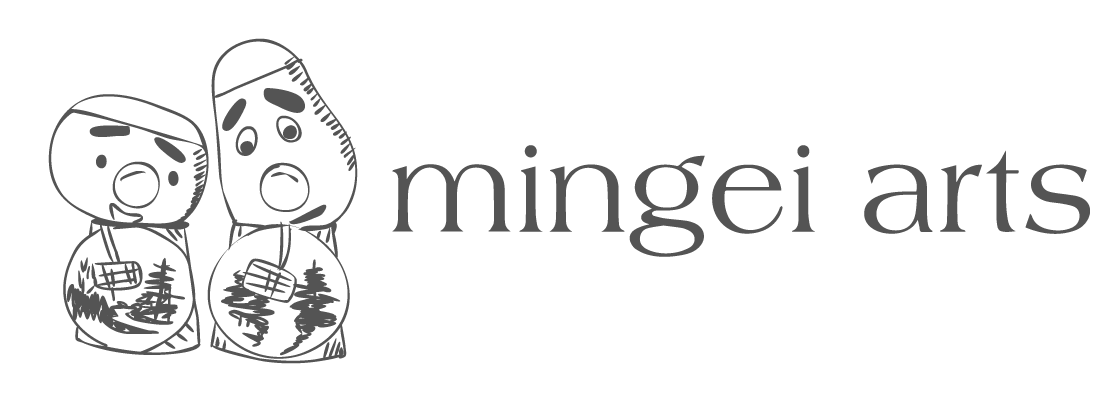

Vintage Japanese Wooden Yajirou Kokeshi Double Acrobats | Tsuta Family Articulated Kijigangu by Tsuta, Sakuzuo (1892-1957)
Dimensions: 6-0”h x 7-0”w x 1-5/8”d
Offered is an unusual, old, and rare Kijigangu by the elder Brother within the Tsuta Family of toy makers depicting two Acrobats. Mamoru’s father created the first Kokeshi toy of this type which was carried on throughout the family's making business and re-introduced later in the family career by Fumio, the son of Mamoru. Japanese toy makers because of interest to expand their market, changed the stagnant fixed toy with amazing interactive and mechanical toys representing three-dimensional images of all aspects of everyday featival life. This form of entertainment came to Japan from China in the seventh century; later, a type of acrobatics called “spider dancing” was sponsored by aristocrats and the shogunate. With growing urbanization in the Edo period, acrobats began to perform in cities and towns for the enjoyment of all classes of society.
This toy mechanical toy is made from recycled wood and painted in a veritable rainbow of Rokoru mono style vertical stripes, made famous by the Yajirou craftsmen, in colors ranging from red, green, and blue pigment, and all made to attract younger children in the 1950s. The figures are also detailed in the Yajirou style faces, both swinging from the cross-bar and are exceptionally expressive like all the Yajirou Kokeshi. Both have wide opened eyes, expressive eyebrows and colorful circular rings on the top of each head. When the knob on the side is turned the acrobat flips up and around the bar, just like a gymnasts with fully moveable arms and legs. This toy possesses the warm-heartedness of being a true treasure of a particular time in history. The toy was made for Japanese tourists as a souvenir in a very old style and motif, and not meant to be exported, thus it was not signed.
You can read more about this family in our BLOG by going to: https://mingeiarts.com/collections/artisan-interactive-toymaker-tsuta-family-sakuzuo-mamoru-fumio-1892-1944
Condition: Excellent meaning that the piece retains its original craft/workmanship and functions as intended, showing a wonderful-developed patina and is void of damage, cracks, breakage, or repairs and meets all the standards of the collectible Vintage Traditional Kokeshi Toys.

Artisan
Interactive Toymaker: Tsuta Family – Sakuzuo, Mamoru, Fumio
1892-1944
Origin:
Grandfather Sakuzuo (1892-1957), Father Mamoru (1928-2009), and son Fumio (1944-), handed down toys and spinning top making from generation to generation and have been producing for over 100 years. They were members of the Japan Top Spinning Association throughout their operation. The family holds several awards for their creations and Mamour's son Fumio, carried on the business producing and sell their creations at the Onogawa Onsen, Yamagata Prefecture, since the beginning of this family enterprise. They went out of business in 2020 after COVID interrupted their operation. Today we look at these folk and ethnic toys from the past with nostalgia and marvel at the engineering ability of early Japanese toy makers.
Collector's note – descriptive qualities, standard characteristics & ornamentation styles:

Japanese toy makers changed the stagnant fixed toy with their amazing interactive and mechanical toys respresenting three-dimensional images of animals and children playing. The majority of the toys are pull and action figures. Early Japanese toys borrowed heavily from German techniques. However, Japanese toys, Kendama, tops, Oyako Daruma, and Battledore were usually made from recycled wood and painted in primary colors. They are derived from the lives of common people that embody the beliefs, religion, the zodiac system, folktales, festivals, aesthetics, and sense of happiness found in one’s native land. Born on Japanese soil, these handmade toys possess the warm-heartedness of being raised by the common people. Hence for the Japanophile, these unique pieces are true treasures.
Explore & Learn More about Interactive Toymaker: Tsuta Family – Sakuzuo, Mamoru, Fumio